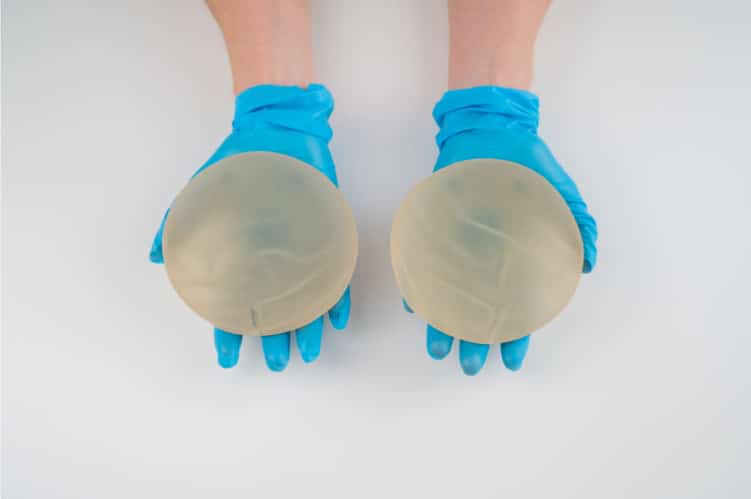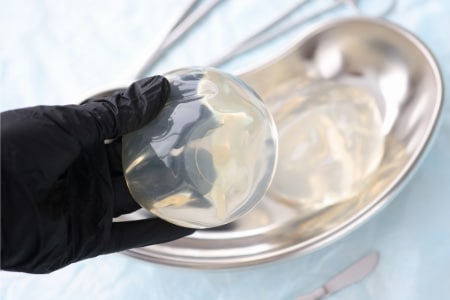
If you’re considering breast implants, you’ve probably learned all about them, including the types, sizes, incisions, and more. One of the most important aspects to consider is “are breast implants safe”. While most women are happy with their results and never have significant problems, there are risks to breast implant manufacturers to consider.
Below are the most important safety considerations to know about breast implants . If you have any concerns or are wondering are breast implants worth it, please talk about them with your board certified plastic surgeon.
FACTORS TO CONSIDER BEFORE HAVING Breast IMPLANTS
It’s wise to make a well-informed decision before you make a significant health decision certain breast implants that could affect the rest of your life. Consider these factors about breast implants:
- Breast implants won’t last forever for most people. At some time, you may need follow-up surgery to remove or correct the implant. If you want to have them taken out later, you may need a breast lift to get your breasts back to how they used to look.
- Implant rupture is a rare but possible risk. While not inherently dangerous, revision surgery will be required.
- If you have silicone breast implants, FDA recommends an MRI every two years, starting three years after surgery. An MRI allows your doctor to check for ruptures.
- Breast implants can make it harder to do breast screening tests, including mammograms. You could need different tests that give the doctor special views of the breasts. Images could be more complex for your doctor to read.
More about safety considerations below.
BREAST IMPLANT RUPTURES
One of the most important considerations about breast implants is they usually don’t last a lifetime. Breast implants have a lifespan, and a few may rupture eventually. That sounds like a big deal, but most doctors say that rupture usually isn’t a health risk.
Most silicone implants have gel in them, so the silicone gel implants themselves will not escape into the body if it ruptures. If a leak happens, it usually stays in the capsule or the implant pocket. Silicone is an inert material and rarely causes any reactions to the body.
If you have saline implants and a rupture, the liquid will be naturally absorbed by the body.
Whichever implant you have, if there’s a rupture, you will need revision surgery to remove the old implant and replace it.
As far as how long implants can last, the general rule is 10 to 15 years, with some lasting for life.
BIA-ALCL
Another risk of breast implants is a rare form of non-Hodgkin’s lymphoma that can develop in the fluid and scar tissue around an implant. This is a rare but sometimes deadly side effect that is related to saline and textured silicone implants. Little is understood about the cause, but some doctors think the implant’s surface can increase the cancer risk.
That’s why highly textured implants aren’t customarily used anymore. However, a few patients around the globe have smooth breast implants who have BIA-ALCL, but they previously had textured implants.
CAPSULAR CONTRACTURE
Capsular contracture is an abnormal tightening of the scar tissue that forms around any breast implant. It can make your breasts feel stiff, sore, and unnatural in shape. It’s one of the most common problems of breast implant surgery. It’s not dangerous to your health, but it’s an undesirable outcome that usually requires revision or reconstructive surgery.
Researchers aren’t sure why it happens but are probably due to more than one factor. Some data suggests that it’s more common after revision surgery and in patients who had the implants put over the muscle instead of below it.
REVISION SURGERY
The time may come to have breast implants removed or replaced. You could have some questions about the safety of the revision surgery. As doctors always point out, any surgery with anesthesia carries risks. Still, surgical complications seldom occur in healthy patients who don’t have health risks such as heart disease, diabetes, obesity, or high blood pressure.
However, some plastic surgeons say revision surgery slightly increases the risk of capsular contracture. Because of that risk, it’s essential to listen to your surgeon’s post-surgery instructions, such as avoiding drinking, certain medications, massage, and other risky activities that could lead to scar formation or bleeding.
Another potential problem you may have heard of is breast implant illness or BII. Doctors don’t consider BII as a disease, but some women claim they had autoimmune symptoms after having breast implants and improved when they were taken out.
If you or anyone in your family have a history of autoimmune disorders or severe allergies, be sure to talk to your surgeon about them.
Questions and Answers about Breast Augmentation
What are the risks of breast implants?
- Additional surgeries
- Breast implant associated-anaplastic large cell lymphoma (BIA-ALCL), which is a cancer of the immune system
- Systemic symptoms, commonly referred to as Breast Implant Illness (BII)
- Capsular contracture (scar tissue that squeezes the implant)
- Breast pain
- Rupture (tears or holes in the shell) of saline and silicone gel-filled implants
- Deflation (with visible change to breast size) of saline-filled implants
- Silent (without symptoms) rupture of silicone gel-filled implants
- Infection
 Are breast implants safe long term?
Are breast implants safe long term?
Systemic symptoms, often referred to as breast implant-related illness, may potentially be linked to the presence of breast implants. The precise connection between these symptoms and breast implants remains unclear.
Reported indicators encompass fatigue, memory difficulties, skin rashes, challenges in concentration and cognitive function, as well as some joint pain and discomfort.
Who should not get breast implants?
You are expecting a child or currently breastfeeding. You have been diagnosed with breast cancer or have received an abnormal mammogram result. You are unwell or in the midst of fighting an infection.
What happens if you never replace breast implants?
This can lead to the development of firm or rigid breast tissue or a noticeable deformity that you can either feel or observe. As breast implants are not intended for lifelong use, breast implants require replacement after approximately 10 to 15 years on average.
BOOK YOUR DALLAS BREAST IMPLANT PROCEDURE TODAY
Once you’re ready to take breast surgery to the next step and book your consultation, there’s no turning back. The results you’ve dreamed of are within your grasp. Stop delaying, and schedule a Dallas breast augmentation procedure consultation with plastic surgeon Dr. Raja Mohan today.
You won’t regret your decision!
REFERENCES
-
- Breast Implant Safety Considerations. (n.d.). Accessed at https://www.realself.com/news/breast-implant-safety-considerations
- Breast Implant Safety. (n.d.). Accessed at https://www.webmd.com/beauty/breast-implant-safety#1
- Risks and Complications With Breast Implants. (2019). Accessed at https://www.fda.gov/medical-devices/breast-implants/risks-and-complications-breast-implants